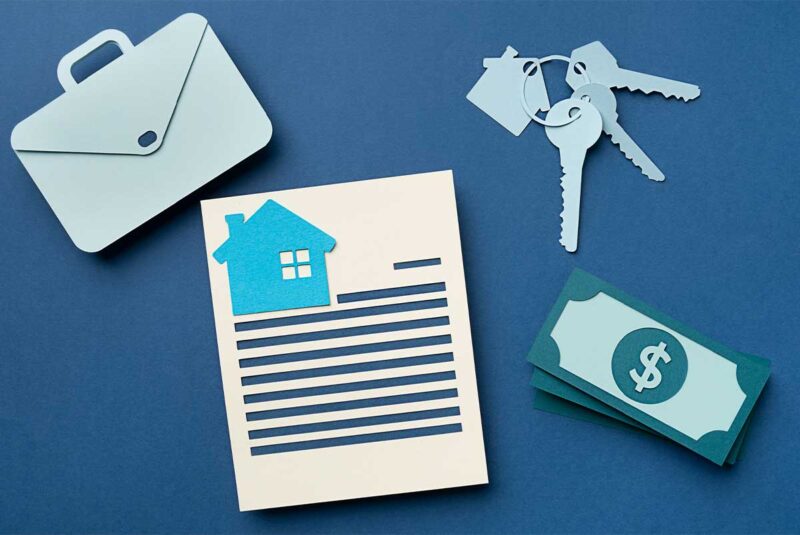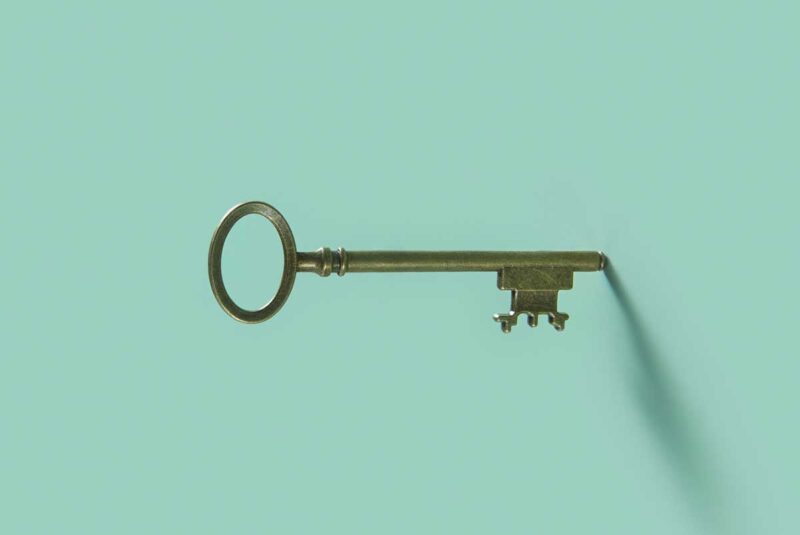Ready To Buy a Home?
Get Approved to Buy a Home
Rocket Mortgage® lets you get to house hunting sooner.
For most home buyers, the lower their monthly mortgage payments, the more house they can afford. But your monthly mortgage payments won’t only be based on the cost of your home loan. The loan’s mortgage interest rate will play a direct role in the size of your monthly payment.
To get the lowest monthly payment possible, you’ll need to qualify for the lowest mortgage rate.
Knowing how to get the best mortgage rate possible means knowing what factors impact the rate. Once you understand what affects it, you can focus on improving what you can control.
Tips for Getting the Lowest Mortgage Rate
Your interest rate will be affected by the stock and bond markets, the Federal Reserve and other factors that are out of your control. Unfortunately, that’s just the way it is. But the good news is that there are key factors you can have more control over – and here is where you can start:
Improve your credit score
One of the first things a lender will do is look at your credit score. Your credit score is a three-digit number that ranges from 300 – 850: the higher your credit score, the more favorable your mortgage rate.
Lenders have different credit score requirements. For conventional mortgages, lenders typically prefer a qualifying credit score of at least 620.[1]
Building your credit score is one of the best strategies to get better interest rates.
Lower your debt-to-income (DTI) ratio
Lenders need to verify you can cover all your bills and that you’re in a good financial position to take on additional debt. Your debt-to-income (DTI) ratio helps them confirm whether you earn enough to pay off your recurring debts.
For conventional loans, lenders prefer a DTI of 36% or less, though it can reach a maximum of 45% if borrowers meet certain eligibility criteria.[1]
(Don’t know what your DTI ratio is? Don’t worry. You can use our DTI calculator to figure it out.)
Generally speaking, the lower your DTI ratio, the better. You can improve your DTI ratio by lowering your monthly debt or increasing your monthly income. Ideally, you could do both.
Build your income history
Lenders will require proof of steady employment and must confirm that you earn enough to pay off a mortgage over time. The more stable your employment history looks, the more confidence lenders will have in you as a borrower. Lenders typically accept pay stubs as proof. Some lenders can automatically verify your income online.
If you’re self-employed or work a few jobs, you may be making a great living, but you’d need to do a little more work than a 9-to-5er. Be ready to provide extra documentation like tax returns and income statements.
Make a bigger down payment
The more you put down for your down payment, the cheaper your mortgage will be. And because you’re borrowing less, your lender will probably be more willing to offer a lower interest rate.
A down payment of 20% or more can help lower your interest rate and save you money because you won’t have to pay private mortgage insurance (PMI). If you like saving money (and can afford it), a larger down payment offers big perks.
Shop multiple mortgage lenders
Would you buy the first pair of sneakers you pick up or jeans you try on? Considering how expensive it is to buy a home, you should compare offers from multiple lenders and focus on their mortgage rates.
Of course, you shouldn’t only focus on mortgage rates. You should also comb through the fine print for fees, points, tax credits and penalties.
But mortgage rates are important because a small percentage decrease or increase can suddenly make a home affordable or unaffordable. The extra legwork could save you hundreds or thousands of dollars over the life of the loan.
Consider a co-signer or co-borrower
If you’re struggling to qualify for an affordable interest rate because of your credit score, adding a co-signer or co-borrower to your loan may help.
- A co-borrower may share property ownership and is responsible for mortgage repayment along with you from the start.
- A co-signer doesn’t share ownership in the home, but agrees to repay the mortgage if you fall behind or miss your monthly mortgage payments.
Whether you decide on a co-borrower or co-signer, they should have excellent credit, and both of you should understand the risks you’re potentially taking.
Let’s not make things awkward at the next family reunion or in your friends group chat.
Loan Options That Impact Mortgage Rates
The specifics of your loan will also impact your mortgage rate. The loan type, the loan term and the loan amount also matter.
Here are some loan options that can help lower your interest rate:
Consider an adjustable-rate mortgage
Instead of taking out a fixed-rate mortgage that locks in your interest rate and monthly mortgage payments for the life of the loan, consider taking out an adjustable-rate mortgage (ARM).
ARMs offer lower introductory rates for the first 3 – 10 years. But once the intro period ends, you’ll pay a variable rate that adjusts with market interest rates. The risk is that the interest rate could spike after the introductory period.
But if your credit is less-than-ideal or you don’t plan on living in the home longer than the intro period is in effect, an ARM may prove to be a beneficial loan.
Consider a shorter loan term
Lenders typically offer better interest rates if your loan term is shorter. The most popular loan term option is the 30-year mortgage. With a shorter loan term, your lender is taking on less risk of default over a shorter amount of time. But a shorter loan term will result in a higher monthly mortgage payment. If you can afford a larger payment, consider a 10-year or 15-year mortgage. You’ll pay more each month, but you’ll build equity in your home faster and pay less interest in the long run.
Our recommended (and thoroughly vetted) lender can help you decide which terms might work best for you.
Consider buying mortgage discount points
Mortgage discount points cost money upfront, but they can help you save money over the life of a loan.
One mortgage discount point equals 1% of the total loan amount and lowers your interest rate by 0.25%.
Depending on how many points you purchase, over the life of a 30-year mortgage, you can usually recoup the upfront cost of the point(s) and come out ahead. (If your interest is piqued, you can learn more about buying mortgage points here.)
Loan size
Most conventional mortgage loans range between $100,000 and $726,200 because that’s the Federal Housing Finance Agency (FHFA) conforming loan limit range for a 1-unit property. In high-cost areas, the maximum can reach as high as $1,089,300.[2]
If you’re interested in a property priced just over the FHFA limit, you may be able to lower your interest rate by making a larger down payment, which would get the loan under the limit.
More Ways To Find Lower Mortgage Rates
Depending on your personal and financial circumstances, you may qualify for additional options to get a lower interest rate.
Look for government-backed loans
If you’re a first-time home buyer, a buyer with past income and credit issues or a veteran, active-duty service member or surviving spouse, you may qualify for lower-interest loans backed by the federal government. Veterans Affairs (VA) loans and Federal Housing Administration (FHA) loans are the most popular government-backed loans.
You’ll need to meet specific criteria to qualify, but these loans can provide a chance at a better mortgage rate.
Look for first-time home buyer programs
Many states offer first-time home buyer programs to help you:
- Navigate the home buying process
- Find down payment assistance
- Connect with special mortgage programs that offer affordable interest rates
- Take advantage of tax credits that make it easier to afford a home
Some of these programs encourage homeownership in certain areas or assist home buyers in certain professions, such as teachers and first responders.
The Department of Housing and Urban Development (HUD) compiles local information by state, which can be a good place to start your search.
Lower Mortgage Rate: Achieved
There are multiple ways to get a lower mortgage interest rate. Some methods require you to present yourself in the best light (think: your credit score and DTI ratio), and others will depend on decisions you make about your loan (think: fixed-rate or shorter-term loan). Consider implementing some combination of these strategies to become a homeowner – and save money while you’re doing it. When you start looking at homes, plug the asking prices into our mortgage calculator to see what your monthly mortgage payments might look like with different interest rates.
Get approved to buy a home.
Rocket Mortgage® lets you get to house hunting sooner.
The Short Version
- Your mortgage rate is based partly on factors you can control, like your credit score and debt-to-income ratio (DTI). Improving these factors will help you get a better rate
- Specifics of your loan, like fixed rate or adjustable rate, loan term and loan size will impact your mortgage rate
- Shopping multiple lenders and looking for assistance through government-backed loans and first-time home buyer programs can also help you find lower rates
Fannie Mae. “Selling Guide.” Retrieved November 2022 from https://selling-guide.fanniemae.com/
Federal Housing Finance Agency. “FHFA Announces Conforming Loan Limits for 2023.” Retrieved December 2022 from https://www.fhfa.gov/Media/PublicAffairs/Pages/FHFA-Announces-Conforming-Loan-Limits-for-2023.aspx




